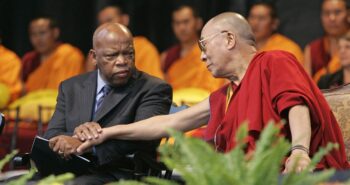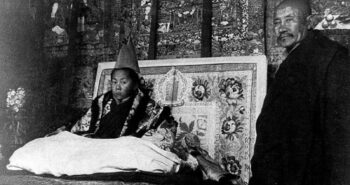As a believer in the Dalai Lama’s nonviolent activism, I lament the passing of Congressman Lewis.
A few days ago, like everyone living in America, I saw the images of the killing of George Floyd in Minneapolis and I shared my thoughts about that tragedy on my personal Facebook page. Today, I want to share those thoughts with all of you who support ICT.
The end came as a surprise to many observers: Without further comment, the British newspaper Daily Telegraph recently stopped publishing Chinese propaganda content and also deleted it from its homepage.
The coronavirus outbreak has tragically caught much of the world off guard. But knowing the Chinese government’s repression in Tibet, I’m not at all surprised by how this pandemic spread.
Tomorrow, the world will celebrate 80 years since the enthronement of this icon from Tibet. On Feb. 22, 1940, the four-year-old Dalai Lama officially took the throne in a glorious ceremony at the Potala Palace in the Tibetan capital of Lhasa.
After seeing all hell broke loose over an NBA executive’s mundane tweet about Hong Kong, we should be asking ourselves whether we can still isolate sports—or any part of our shared public life—from the tentacles of China’s asphyxiating censors.
Today, Oct. 2, 2019, the world marks 150 years since Mahatma Gandhi was born. But for those of us in the Tibet movement, it’s perhaps more important to remember when he died.
As a new school year gets underway in Tibet, a group of nomadic students have been forced to spread Chinese propaganda urging Tibetans to love the Communist Party, love China and love Chinese socialism.
This summer, I interned for the democratic staff of the House Foreign Affairs Committee (HFAC) as a Lodi Gyari Fellow for the International Campaign for Tibet. Through ICT, I was able to place an internship that met both my desire for congressional experience and my academic interests in international affairs.
First, I would like to share a big warm thank you to all the sponsors, supporters and staff members at ICT who made this program possible. Without their endless support, hard work and dedication none of this would have been possible.










